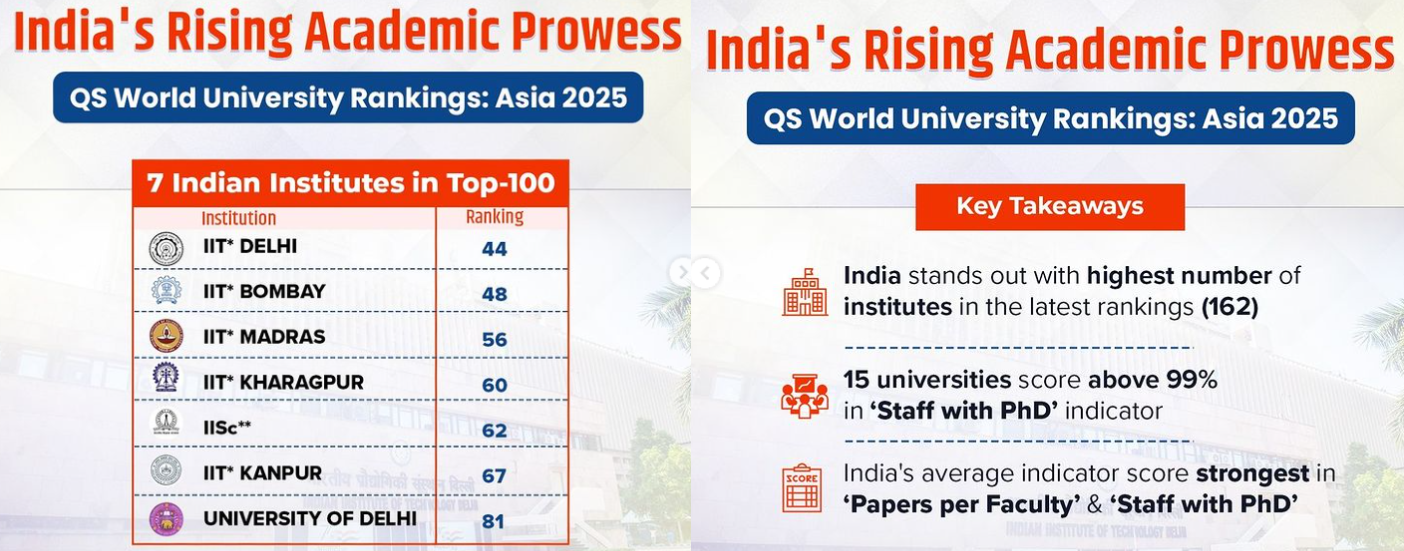Important Facts For Prelims
QS World University Rankings: Asia 2025
- 13 Nov 2024
- 3 min read
Why in News?
The Quacquarelli Symonds (QS) World University Rankings: Asia 2025 highlights India's growth in higher education, with 2 institutions in the top 50 and 7 in the top 100. This reflects the growing competition of Indian institutions across Asia.
How is India Performing in the QS Asia Rankings?
- Upward Trajectory in Higher Education: India has 2 institutions in the top 50, with Indian Institute of Technology Delhi (IIT-D) ranked 44th and IIT Bombay ranked 48th, underscoring their prominence in Asia's higher education.
- Additionally, 5 Indian institutions are in the top 100, IIT Madras (56th), IIT Kharagpur (60th), Indian Institute of Science (62nd), IIT Kanpur (67th), and University of Delhi (81st).
- Other Notable Institutions like IIT Guwahati, IIT Roorkee, Jawaharlal Nehru University, Chandigarh University, and Vellore Institute of Technology highlight India's academic excellence, with many of these institutions securing spots in the Top 150 globally.
- Key Factors Behind the Rise in India’s Rankings: India's strong performance is driven by high research productivity, with institutions like Anna University excelling in Papers Per Faculty.
- A focus on academic excellence is also evident, with many universities boasting high PhD staff, while growing international research networks, like the University of Delhi’s rise in rankings, enhance global recognition.
Implications of the QS University Rankings for India’s Education Sector
- Global Recognition: Indian universities' improved rankings enhance their global reputation, attracting international students and faculty. This recognition helps position India as a hub for higher education.
- India’s educational sector has grown substantially, with 46 institutions making it to the QS World University 2025, up from just 11 in 2015, marking a 318% increase in the last decade.
- Increased FDI: Enhanced educational standards and global recognition can lead to increased Foreign Direct Investment(FDI) in the education sector, boosting the economy and creating more job opportunities.
- Improved Academic Standards: The pursuit of higher rankings encourages Indian universities to improve their academic standards, including curriculum development, teaching methodologies, and educational policies like the National Education Policy (NEP) 2020. This leads to a more robust and competitive educational framework.
Quacquarelli Symonds
Quacquarelli Symonds (QS) is a London-based global higher education analyst best known for its widely recognized QS World University Rankings.
- It assesses universities based on six indicators looking at four broad categories: research reputation, the learning and teaching environment, research impact, and internationalisation.





